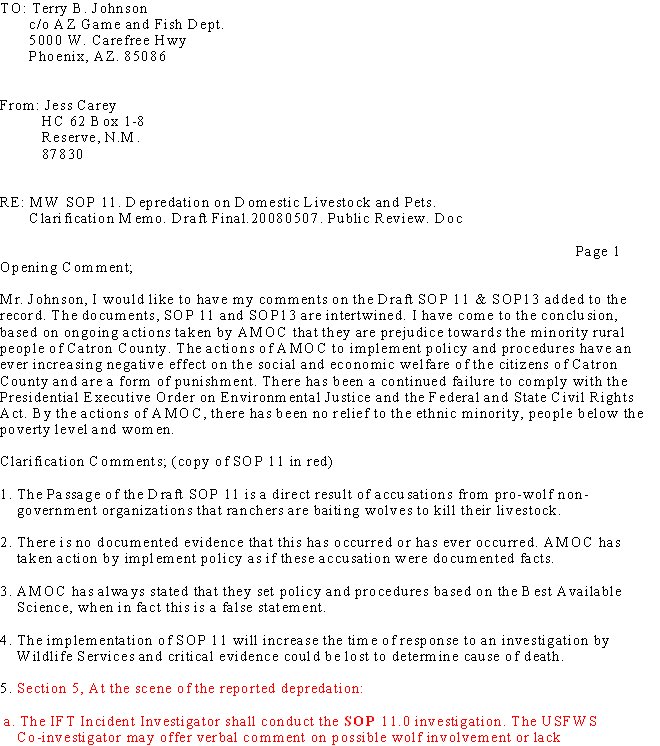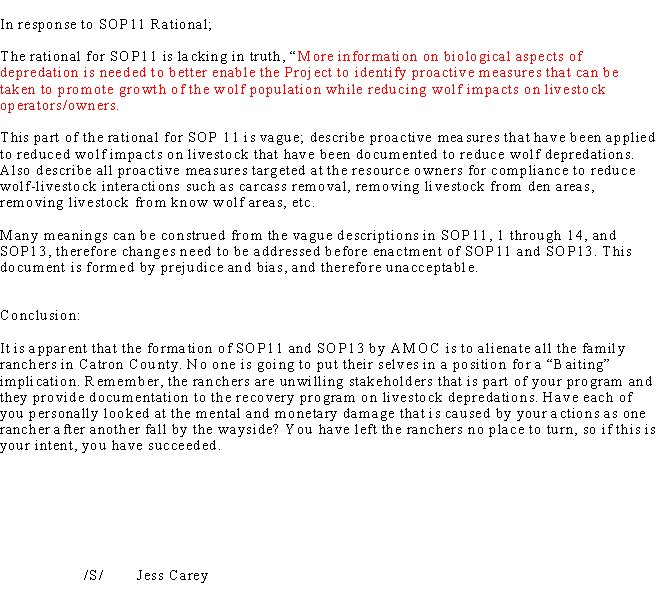*The following information is for education purposes. The text provided and the links are from United Nations websites. I'm opposed to such international regulation within Otero County. Are you ready to sign on to Agenda 21? You don't believe World Heritage Site designation is an instrument for implementaion of Agenda 21. This blog is your opportunity to present your argument and back it up.*Agenda 21 is a comprehensive plan of action to be taken globally, nationally and locally by organizations of the United Nations System, Governments, and Major Groups in every area in which human impacts on the environment.
http://www.un.org/esa/sustdev/documents/agenda21/index.htm
MAJOR GROUPS: NGOS ADVISING AGENDA 21http://www.un.org/esa/sustdev/mgroups/about_mgroups/amg_ngo_main.htm
(This link leads to the involvement of NGOs in the perceived plan for your future.
Remember, this information is about a dynamic that doesn't exist, according to the Alamogordo World Intellectual Society...the ostrich is their symbol)
About Major Groups: Youth and Children
Agenda 21: Chapter 25
CHILDREN AND YOUTH IN SUSTAINABLE DEVELOPMENT
25.1. Youth comprise nearly 30 per cent of the world's population. The involvement of today's youth in environment and development decision-making and in the implementation of programmes is critical to the long-term success of Agenda 21.
http://www.un.org/esa/sustdev/mgroups/about_mgroups/amg_youth_main.htm
WSSD Global Partnership
for Capacity Building to
Implement the Globally
Harmonized System of
Classification and Labelling
of Chemicals (GHS)
United States
In the United States, there are four Federal government agencies
engaged in issues related to implementation of the GHS: the
Consumer Product Safety Commission (CPSC); the Department of
Transportation (DOT); the Environmental Protection Agency (EPA);
and the Occupational Safety and Health Administration (OSHA).
CPSC is developing a situation analysis for its classification and
labelling requirements activities in comparison to the GHS. EPA is
working with stakeholders to resolve issues regarding application of
the GHS to pesticides, and has been engaged with North American
Free Trade Agreement (NAFTA) trading partners on a coordinated
approach to implementation of the GHS to pesticides. DOT is
planning to adopt GHS-related changes in 2007. OSHA added
consideration of adoption of the GHS to its regulatory agenda in
2005, and continued NAFTA discussions on coordinated
implementation of the GHS. In addition, a pilot project was
completed with the European Union related to classification of
chemicals under the GHS, and preparation of GHS-compliant labels
and safety data sheets. The US is also participating in Asia-Pacific
Economic Cooperation (APEC) related discussions on GHS
implementation issues.
http://www.unitar.org/cwg/publications/cw/ghs/GHS_AR_2005_FINAL.pdf
The meeting is intended as a first step towards a broader comprehension of the efficiency and effectiveness of use of natural resource revenues at the local level for sustainable development and growth. It is hoped that the confrontation of experiences from countries at different levels of development and operating within different institutional models of local development will shed light on the constraints that limit and conditions which favor the effective and equitable use of natural resource revenues at the local level.
The meeting will take place in New York, at UN Headquarters, on September 21, 2007.
The meeting agenda is built so as to bring together the perspectives of various countries and various stakeholders, including field researchers and non-governmental organizations working on issues germane to the conference topic.
http://www.un.org/esa/sustdev/sdissues/institutional_arrangements/egm2007/index.htm
http://www.un.org/esa/sustdev/sdissues/institutional_arrangements/egm2007/index.htm
Posts and Comments from Readers
Please include yourself in the discussion. Post a comment.
Wednesday, September 12, 2007
UNITED NATIONS: AGENDA 21: 'EVERY AREA IN WHICH HUMAN IMPACT THE ENVIRONMENT'
Labels:
United Nations
Subscribe to:
Post Comments (Atom)



















.jpg)


















2 comments:
--------------------------------------------------------------------------------
United Nations A/CONF.151/26 (Vol. III)
General Assembly
Distr. GENERAL
14 August 1992
ORIGINAL: ENGLISH
--------------------------------------------------------------------------------
REPORT OF THE UNITED NATIONS CONFERENCE ON
ENVIRONMENT AND DEVELOPMENT
(Rio de Janeiro, 3-14 June 1992)
Annex III
NON-LEGALLY BINDING AUTHORITATIVE STATEMENT OF PRINCIPLES
FOR A GLOBAL CONSENSUS ON THE MANAGEMENT, CONSERVATION
AND SUSTAINABLE DEVELOPMENT OF ALL TYPES OF FORESTS
PREAMBLE
(a) The subject of forests is related to the entire range of
environmental and development issues and opportunities, including the right
to socio-economic development on a sustainable basis.
(b) The guiding objective of these principles is to contribute to the
management, conservation and sustainable development of forests and to provide
for their multiple and complementary functions and uses.
(c) Forestry issues and opportunities should be examined in a holistic
and balanced manner within the overall context of environment and development,
taking into consideration the multiple functions and uses of forests,
including traditional uses, and the likely economic and social stress when
these uses are constrained or restricted, as well as the potential for
development that sustainable forest management can offer.
(d) These principles reflect a first global consensus on forests. In
committing themselves to the prompt implementation of these principles,
countries also decide to keep them under assessment for their adequacy with
regard to further international cooperation on forest issues.
(e) These principles should apply to all types of forests, both
natural and planted, in all geographical regions and climatic zones, including
austral, boreal, subtemperate, temperate, subtropical and tropical.
(f) All types of forests embody complex and unique ecological
processes which are the basis for their present and potential capacity to
provide resources to satisfy human needs as well as environmental values, and
as such their sound management and conservation is of concern to the
Governments of the countries to which they belong and are of value to local
communities and to the environment as a whole.
(g) Forests are essential to economic development and the maintenance
of all forms of life.
(h) Recognizing that the responsibility for forest management,
conservation and sustainable development is in many States allocated among
federal/national, state/provincial and local levels of government, each State,
in accordance with its constitution and/or national legislation, should pursue
these principles at the appropriate level of government.
PRINCIPLES/ELEMENTS
1. (a) States have, in accordance with the Charter of the United Nations
and the principles of international law, the sovereign right to exploit their
own resources pursuant to their own environmental policies and have the
responsibility to ensure that activities within their jurisdiction or control
do not cause damage to the environment of other States or of areas beyond the
limits of national jurisdiction.
(b) The agreed full incremental cost of achieving benefits associated
with forest conservation and sustainable development requires increased
international cooperation and should be equitably shared by the international
community.
2. (a) States have the sovereign and inalienable right to utilize, manage
and develop their forests in accordance with their development needs and level
of socio-economic development and on the basis of national policies consistent
with sustainable development and legislation, including the conversion of such
areas for other uses within the overall socio-economic development plan and
based on rational land-use policies.
(b) Forest resources and forest lands should be sustainably managed
to meet the social, economic, ecological, cultural and spiritual needs of
present and future generations. These needs are for forest products and
services, such as wood and wood products, water, food, fodder, medicine, fuel,
shelter, employment, recreation, habitats for wildlife, landscape diversity,
carbon sinks and reservoirs, and for other forest products. Appropriate
measures should be taken to protect forests against harmful effects of
pollution, including air-borne pollution, fires, pests and diseases, in order
to maintain their full multiple value.
(c) The provision of timely, reliable and accurate information on
forests and forest ecosystems is essential for public understanding and
informed decision-making and should be ensured.
(d) Governments should promote and provide opportunities for the
participation of interested parties, including local communities and
indigenous people, industries, labour, non-governmental organizations and
individuals, forest dwellers and women, in the development, implementation and
planning of national forest policies.
3. (a) National policies and strategies should provide a framework for
increased efforts, including the development and strengthening of institutions
and programmes for the management, conservation and sustainable development
of forests and forest lands.
(b) International institutional arrangements, building on those
organizations and mechanisms already in existence, as appropriate, should
facilitate international cooperation in the field of forests.
(c) All aspects of environmental protection and social and economic
development as they relate to forests and forest lands should be integrated
and comprehensive.
4. The vital role of all types of forests in maintaining the ecological
processes and balance at the local, national, regional and global levels
through, inter alia, their role in protecting fragile ecosystems, watersheds
and freshwater resources and as rich storehouses of biodiversity and
biological resources and sources of genetic material for biotechnology
products, as well as photosynthesis, should be recognized.
5. (a) National forest policies should recognize and duly support the
identity, culture and the rights of indigenous people, their communities and
other communities and forest dwellers. Appropriate conditions should be
promoted for these groups to enable them to have an economic stake in forest
use, perform economic activities, and achieve and maintain cultural identity
and social organization, as well as adequate levels of livelihood and
well-being, through, inter alia, those land tenure arrangements which serve
as incentives for the sustainable management of forests.
(b) The full participation of women in all aspects of the management,
conservation and sustainable development of forests should be actively
promoted.
6. (a) All types of forests play an important role in meeting energy
requirements through the provision of a renewable source of bio-energy,
particularly in developing countries, and the demands for fuelwood for
household and industrial needs should be met through sustainable forest
management, afforestation and reforestation. To this end, the potential
contribution of plantations of both indigenous and introduced species for the
provision of both fuel and industrial wood should be recognized.
(b) National policies and programmes should take into account the
relationship, where it exists, between the conservation, management and
sustainable development of forests and all aspects related to the production,
consumption, recycling and/or final disposal of forest products.
(c) Decisions taken on the management, conservation and sustainable
development of forest resources should benefit, to the extent practicable,
from a comprehensive assessment of economic and non-economic values of forest
goods and services and of the environmental costs and benefits. The
development and improvement of methodologies for such evaluations should be
promoted.
(d) The role of planted forests and permanent agricultural crops as
sustainable and environmentally sound sources of renewable energy and
industrial raw material should be recognized, enhanced and promoted. Their
contribution to the maintenance of ecological processes, to offsetting
pressure on primary/old-growth forest and to providing regional employment and
development with the adequate involvement of local inhabitants should be
recognized and enhanced.
(e) Natural forests also constitute a source of goods and services,
and their conservation, sustainable management and use should be promoted.
7. (a) Efforts should be made to promote a supportive international
economic climate conducive to sustained and environmentally sound development
of forests in all countries, which include, inter alia, the promotion of
sustainable patterns of production and consumption, the eradication of poverty
and the promotion of food security.
(b) Specific financial resources should be provided to developing
countries with significant forest areas which establish programmes for the
conservation of forests including protected natural forest areas. These
resources should be directed notably to economic sectors which would stimulate
economic and social substitution activities.
8. (a) Efforts should be undertaken towards the greening of the world.
All countries, notably developed countries, should take positive and
transparent action towards reforestation, afforestation and forest
conservation, as appropriate.
(b) Efforts to maintain and increase forest cover and forest
productivity should be undertaken in ecologically, economically and socially
sound ways through the rehabilitation, reforestation and re-establishment of
trees and forests on unproductive, degraded and deforested lands, as well as
through the management of existing forest resources.
(c) The implementation of national policies and programmes aimed at
forest management, conservation and sustainable development, particularly in
developing countries, should be supported by international financial and
technical cooperation, including through the private sector, where
appropriate.
(d) Sustainable forest management and use should be carried out in
accordance with national development policies and priorities and on the basis
of environmentally sound national guidelines. In the formulation of such
guidelines, account should be taken, as appropriate and if applicable, of
relevant internationally agreed methodologies and criteria.
(e) Forest management should be integrated with management of adjacent
areas so as to maintain ecological balance and sustainable productivity.
(f) National policies and/or legislation aimed at management,
conservation and sustainable development of forests should include the
protection of ecologically viable representative or unique examples of
forests, including primary/old-growth forests, cultural, spiritual,
historical, religious and other unique and valued forests of national
importance.
(g) Access to biological resources, including genetic material, shall
be with due regard to the sovereign rights of the countries where the forests
are located and to the sharing on mutually agreed terms of technology and
profits from biotechnology products that are derived from these resources.
(h) National policies should ensure that environmental impact
assessments should be carried out where actions are likely to have significant
adverse impacts on important forest resources, and where such actions are
subject to a decision of a competent national authority.
9. (a) The efforts of developing countries to strengthen the management,
conservation and sustainable development of their forest resources should be
supported by the international community, taking into account the importance
of redressing external indebtedness, particularly where aggravated by the net
transfer of resources to developed countries, as well as the problem of
achieving at least the replacement value of forests through improved market
access for forest products, especially processed products. In this respect,
special attention should also be given to the countries undergoing the process
of transition to market economies.
(b) The problems that hinder efforts to attain the conservation and
sustainable use of forest resources and that stem from the lack of alternative
options available to local communities, in particular the urban poor and poor
rural populations who are economically and socially dependent on forests and
forest resources, should be addressed by Governments and the international
community.
(c) National policy formulation with respect to all types of forests
should take account of the pressures and demands imposed on forest ecosystems
and resources from influencing factors outside the forest sector, and
intersectoral means of dealing with these pressures and demands should be
sought.
10. New and additional financial resources should be provided to developing
countries to enable them to sustainably manage, conserve and develop their
forest resources, including through afforestation, reforestation and combating
deforestation and forest and land degradation.
11. In order to enable, in particular, developing countries to enhance their
endogenous capacity and to better manage, conserve and develop their forest
resources, the access to and transfer of environmentally sound technologies
and corresponding know-how on favourable terms, including on concessional and
preferential terms, as mutually agreed, in accordance with the relevant
provisions of Agenda 21, should be promoted, facilitated and financed, as
appropriate.
12. (a) Scientific research, forest inventories and assessments carried
out by national institutions which take into account, where relevant,
biological, physical, social and economic variables, as well as technological
development and its application in the field of sustainable forest management,
conservation and development, should be strengthened through effective
modalities, including international cooperation. In this context, attention
should also be given to research and development of sustainably harvested
non-wood products.
(b) National and, where appropriate, regional and international
institutional capabilities in education, training, science, technology,
economics, anthropology and social aspects of forests and forest management
are essential to the conservation and sustainable development of forests and
should be strengthened.
(c) International exchange of information on the results of forest and
forest management research and development should be enhanced and broadened,
as appropriate, making full use of education and training institutions,
including those in the private sector.
(d) Appropriate indigenous capacity and local knowledge regarding the
conservation and sustainable development of forests should, through
institutional and financial support and in collaboration with the people in
the local communities concerned, be recognized, respected, recorded, developed
and, as appropriate, introduced in the implementation of programmes. Benefits
arising from the utilization of indigenous knowledge should therefore be
equitably shared with such people.
13. (a) Trade in forest products should be based on non-discriminatory and
multilaterally agreed rules and procedures consistent with international trade
law and practices. In this context, open and free international trade in
forest products should be facilitated.
(b) Reduction or removal of tariff barriers and impediments to the
provision of better market access and better prices for higher value-added
forest products and their local processing should be encouraged to enable
producer countries to better conserve and manage their renewable forest
resources.
(c) Incorporation of environmental costs and benefits into market
forces and mechanisms, in order to achieve forest conservation and sustainable
development, should be encouraged both domestically and internationally.
(d) Forest conservation and sustainable development policies should
be integrated with economic, trade and other relevant policies.
(e) Fiscal, trade, industrial, transportation and other policies and
practices that may lead to forest degradation should be avoided. Adequate
policies, aimed at management, conservation and sustainable development of
forests, including, where appropriate, incentives, should be encouraged.
14. Unilateral measures, incompatible with international obligations or
agreements, to restrict and/or ban international trade in timber or other
forest products should be removed or avoided, in order to attain long-term
sustainable forest management.
15. Pollutants, particularly air-borne pollutants, including those
responsible for acidic deposition, that are harmful to the health of forest
ecosystems at the local, national, regional and global levels should be
controlled.
END OF DOCUMENT
--------------------------------------------------------------------------------
This document has been posted online by the United Nations Department of Economic and Social Affairs (DESA). Reproduction and dissemination of the document - in electronic and/or printed format - is encouraged, provided acknowledgement is made of the role of the United Nations in making it available.
Date last updated: 14 January, 2000 by DESA/DSD
Copyright © 1999 United Nations
http://www.un.org/esa/sustdev/documents/agenda21/english/agenda21toc.htm
Post a Comment